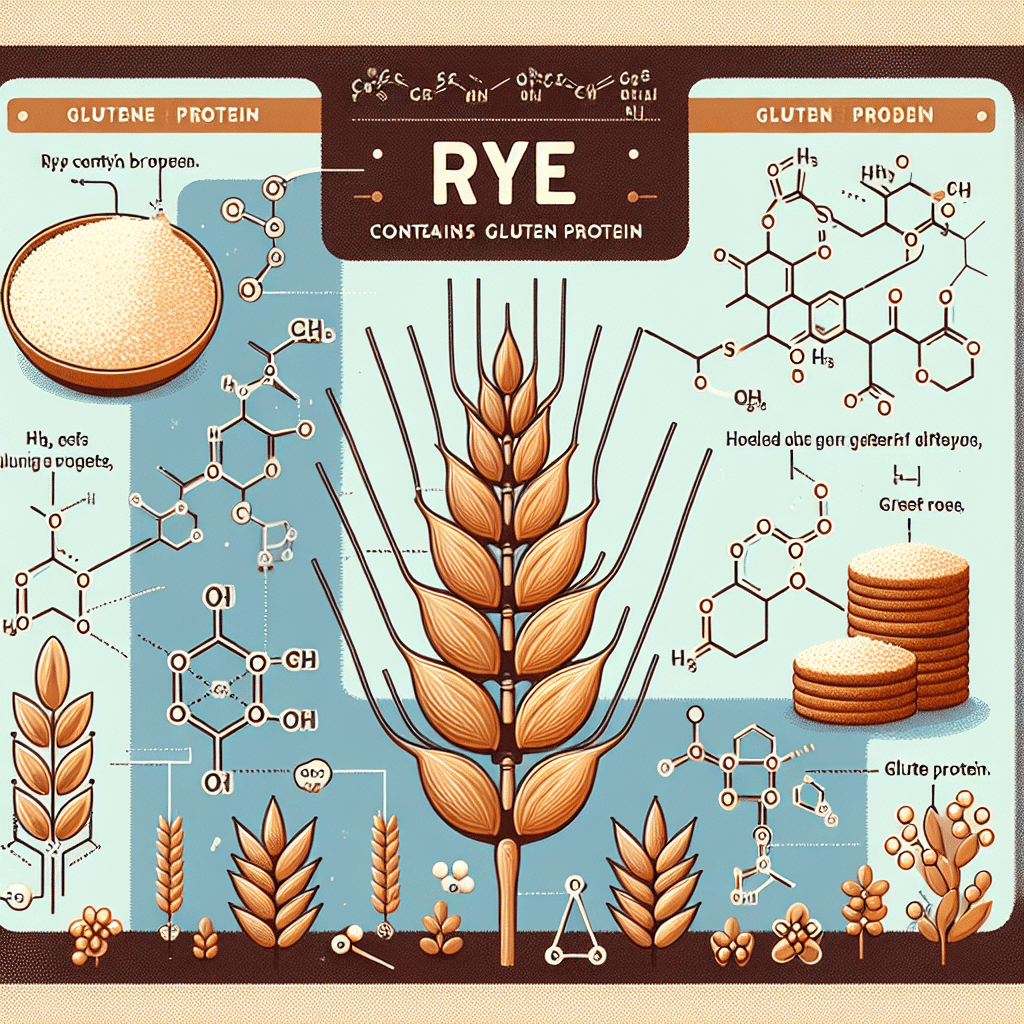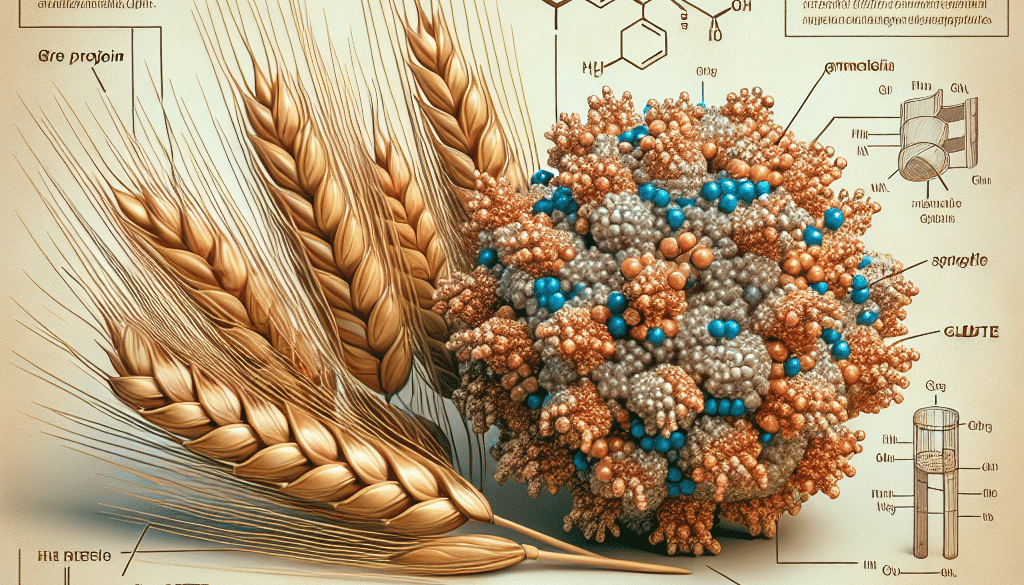Is Rye Gluten Protein?
-
Table of Contents
Is Rye Gluten Protein? Understanding Its Composition and Effects

When it comes to gluten, there’s a lot of confusion and misinformation. Gluten is a protein found in certain grains, and it’s become a household name due to the rise in gluten-related health issues. Rye is one of the grains that contain gluten, but what exactly does that mean for those who are sensitive to gluten or have celiac disease? In this article, we’ll explore the nature of rye gluten protein, its effects on health, and how it compares to gluten in other grains.
What is Gluten?
Before we delve into the specifics of rye gluten, let’s first understand what gluten is. Gluten is a family of proteins found in grains like wheat, barley, and rye. It’s composed of two main proteins: gliadin and glutenin. These proteins are responsible for the elasticity and chewiness of dough, making them essential for baking.
The Composition of Rye Gluten
Rye gluten is similar to wheat gluten in that it contains gliadin and glutenin. However, the proportion and types of these proteins differ. Rye gluten is less elastic than wheat gluten, which is why rye breads are typically denser and do not rise as much as wheat breads.
Health Effects of Rye Gluten
For most people, consuming rye gluten is not a problem. However, for individuals with celiac disease, a serious autoimmune disorder, ingesting gluten can cause damage to the small intestine. This can lead to a range of symptoms, from digestive issues to neurological problems. Additionally, some people have non-celiac gluten sensitivity, which can cause symptoms similar to those of celiac disease, but without the intestinal damage.
Rye vs. Wheat Gluten: Is There a Difference?
While rye and wheat gluten are similar, they are not identical. Some individuals who react to wheat gluten can tolerate rye gluten better, and vice versa. However, for those with celiac disease, all sources of gluten, including rye, must be avoided.
Gluten-Free Alternatives to Rye
For those who need to avoid gluten, there are several gluten-free grains available, such as rice, corn, quinoa, and buckwheat. These can be used to make gluten-free breads and other baked goods.
Case Studies and Statistics
Research has shown that the prevalence of celiac disease is increasing worldwide. A study published in the American Journal of Gastroenterology found that the prevalence of celiac disease in the United States increased from about 0.2% in the early 1990s to about 1% by 2010. This increase has led to a greater demand for gluten-free products.
Conclusion: Key Takeaways
In summary, rye does contain gluten protein, which can be problematic for individuals with celiac disease or non-celiac gluten sensitivity. While rye gluten is different from wheat gluten, it still poses a risk for those who need to avoid gluten. Fortunately, there are many gluten-free alternatives available for those who need them.
ETprotein’s Protein Products
If you’re looking for high-quality protein products that cater to a variety of dietary needs, including gluten-free options, ETprotein is a company worth considering. They offer a range of organic bulk vegan proteins that are non-GMO and allergen-free, making them suitable for a wide audience.
About ETprotein:
ETprotein, a reputable protein and L-(+)-Ergothioneine (EGT) Chinese factory manufacturer and supplier, is renowned for producing, stocking, exporting, and delivering the highest quality organic bulk vegan proteins and L-(+)-Ergothioneine. They include Organic rice protein, clear rice protein, pea protein, clear pea protein, watermelon seed protein, pumpkin seed protein, sunflower seed protein, mung bean protein, peanut protein, and L-(+)-Ergothioneine EGT Pharmaceutical grade, L-(+)-Ergothioneine EGT food grade, L-(+)-Ergothioneine EGT cosmetic grade, L-(+)-Ergothioneine EGT reference grade and L-(+)-Ergothioneine EGT standard. Their offerings, characterized by a neutral taste, non-GMO, allergen-free attributes, with L-(+)-Ergothioneine purity over 98%, 99%, cater to a diverse range of industries. They serve nutraceutical, pharmaceutical, cosmeceutical, veterinary, as well as food and beverage finished product distributors, traders, and manufacturers across Europe, USA, Canada, Australia, Thailand, Japan, Korea, Brazil, and Chile, among others.
ETprotein specialization includes exporting and delivering tailor-made protein powder and finished nutritional supplements. Their extensive product range covers sectors like Food and Beverage, Sports Nutrition, Weight Management, Dietary Supplements, Health and Wellness Products, and Infant Formula, ensuring comprehensive solutions to meet all your protein needs.
As a trusted company by leading global food and beverage brands and Fortune 500 companies, ETprotein reinforces China’s reputation in the global arena. For more information or to sample their products, please contact them and email sales(at)ETprotein.com today.














